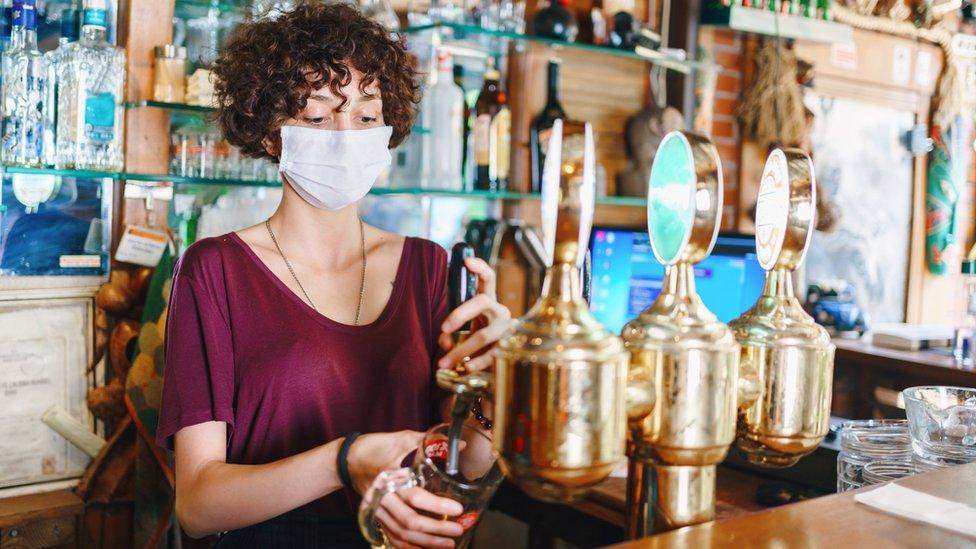Café de Paris: London nightclub closes permanently
- Published
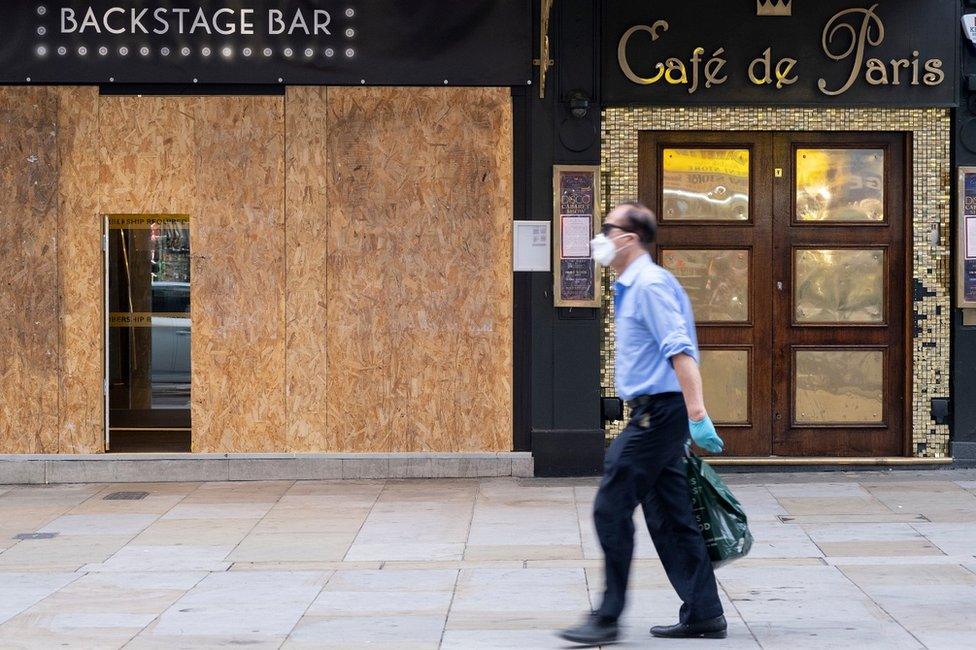
Café de Paris was based on Coventry Street, near to Piccadilly Circus in central London
A London nightclub which has been in the West End for nearly 100 years has permanently closed due to the pandemic, its owners have said.
Café de Paris, based by Piccadilly Circus, first opened in 1924.
The venue announced it would shut temporarily as the lockdown began in March, but vowed it would see guests again "on the other side of Covid-19".
However, in a new statement the club's owners said they had "reached the end of the road".
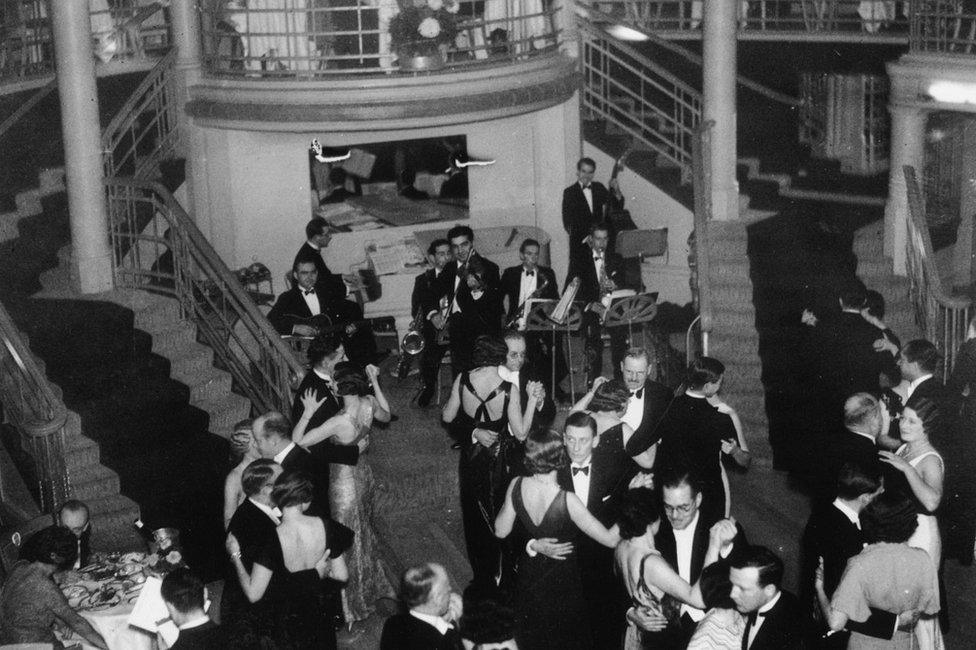
The cabaret club first opened in 1924
The cabaret venue had hosted the likes of Frank Sinatra, Judy Garland and Noel Coward over the years.
It remained open as World War Two broke out and only shut when the building was struck by a high-explosive bomb during a show on 8 March 1941.
At least 34 people, including the dance band leader Ken "Snakehips" Johnson, died during the attack.
Café de Paris then closed for the remainder of the war but it began welcoming guests again in 1948.
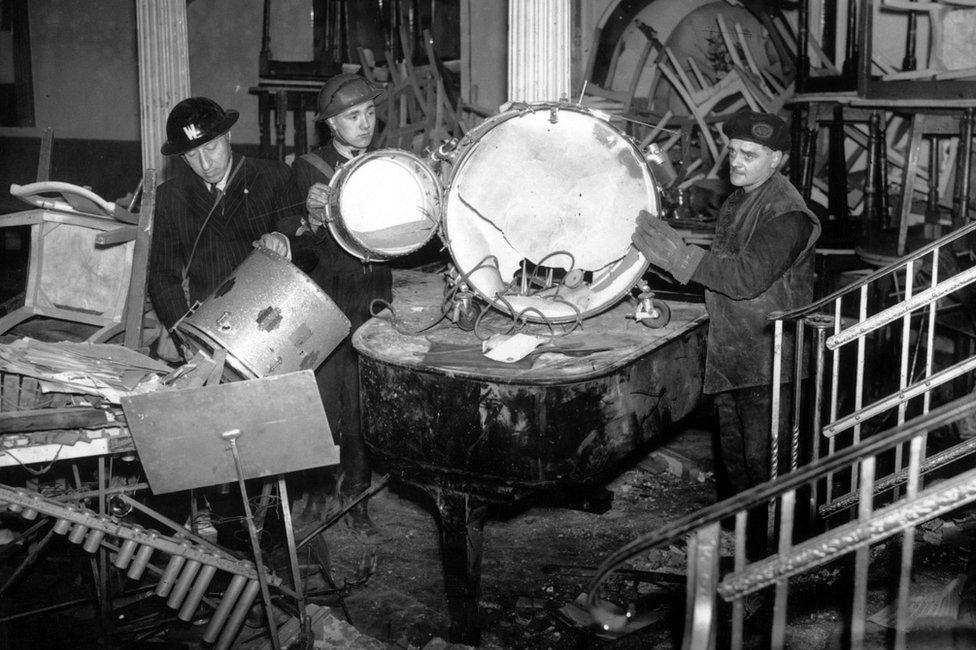
At least 34 people died when a bomb struck the building as a show was taking place
In a statement posted on Twitter, external, the club's owners said it would now be shutting "for good".
"We tried everything but the devastating effect of Covid-19 in the end was too much," they said, adding that "like so many other hospitality businesses, we have reached the end of the road".
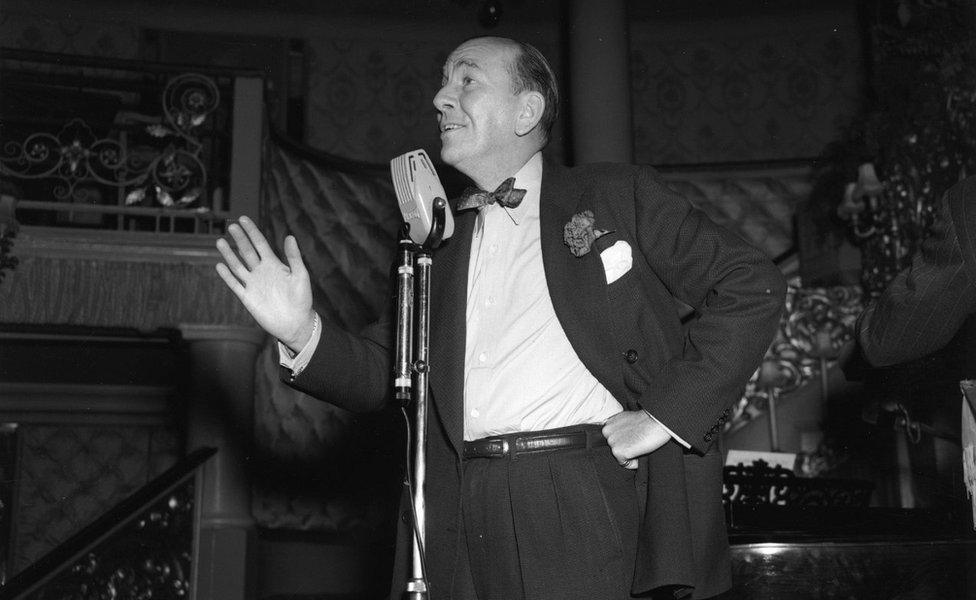
Noel Coward, pictured here in 1951, was among those who performed at the venue
Hospitality firms have been hit particularly hard during the pandemic with recent figures showing the sector had experienced high numbers of job losses as a result of Covid restrictions.
In October, Café de Paris revealed it had failed in its bid for a grant, external from the £1.57bn cultural recovery fund.
Related topics
- Published15 December 2020
